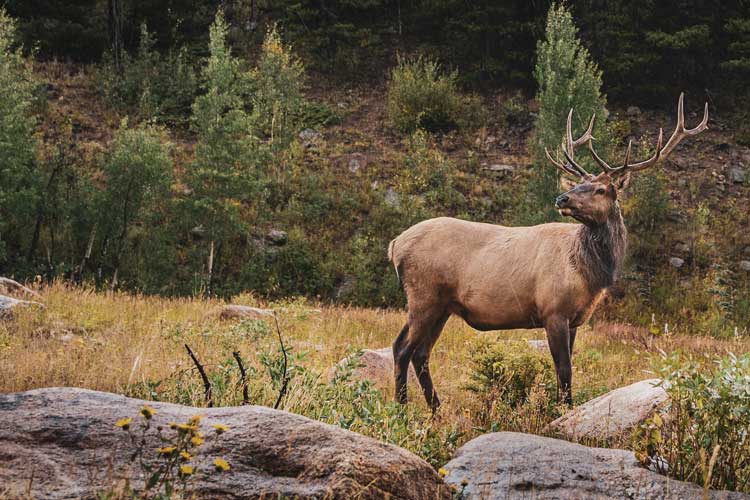Blue Ridge Parkway officials urge public to keep an eye out for elk
Officials with the Blue Ridge Parkway and Great Smoky Mountain National Park are urging the public to watch out for elk on the roadways this fall. Adult elk can weight between 500 and 700 pounds and were reintroduced to Great Smoky Mountain National Park in the early 2000’s. Since then the animal has made a strong comeback and can now be found in the national park and the southernmost parts of the Blue Ridge Parkway.
Striking an elk with your car can cause serious damage to the animal and your vehicle, and elk have been known to charge vehicles and people if they feel threatened. Park officials advise that the best way to stay safe around elk is to keep a healthy distance between you and the animal. In Great Smoky Mountain National Park it is illegal to come within 150 feet from elk.
A record breaking 18-foot Burmese python has been removed from the wild in Florida
Watch where you step! The state of Florida is no stranger to things that go bump (and slither) in the night, but this snake takes the cake—an 18 foot, 4 inch adult female Burmese python weighing 98 pounds and 10 ounces was captured in Big Cypress National Preserve. It is the largest python ever captured in the preserve and the second-largest python ever captured in the state of Florida (the largest was 4 inches longer.)
Burmese pythons are not native to Florida and were introduced to the wild as escaped or released pets. The snakes negatively impact native wildlife and habitat. Capturing female pythons is especially important because they introduce 30 to 60 hatchlings to the population each time they breed.
Invasive species of fish found for the first time in Georgia
In early October, an angler fishing on private property in Gwinnett County, Georgia, reported catching a northern snakehead. Northern snakeheads are long, thin fish that can grow up to three feet in length, similar in appearance to a native bowfin. Northern snakeheads are invasive; this is the first reported sighting of the fish in Georgia, though they have been confirmed in 14 other states. Non-native fish such as the northern snakehead can impact native species by competing for food and habitat.
Anglers are asked to help stop the spread of the northern snakehead in Georgia by learning the appearance of the fish and killing the fish immediately once caught. Anglers are also asked to take pictures of the fish, note where it was caught, and report the catch to a local Georgia DNR Wildlife Resources Division Fisheries Office.







